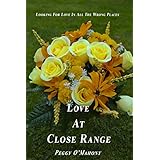I have to admit that I am not a fan of Maeve Binchy's novels but I always enjoyed her articles in The Irish Times. This is a wonderful collection of her wit and wisdom over the years. She had a sharp eye for detail and an uncanny ability to listen to conversations going on around her and present them in a fascinating way to the reader. Some of the blurb on the cover of the book shows her talent very clearly: 'At the shop in London Airport, there was a young man studying the display of postcards......he bought twelve of one that said "sorry".' and most tellingly 'I suppose I am obsessively interested in what some might consider the trivia of other people's lives'.
Except it was never trivia to Maeve who picked up on nuances, moods, joy, sadness. It was simply that she liked her fellow human beings.
In an article in The Sunday Times magazine yesterday, there was an extract from Richard Reed's If I Could Tell You Just One Thing: Encounters With Remarkable People and Their Most Valuable Advice, to be published on November 3rd by Canongate, Bill Clinton is quoted as saying "I've come to believe that the most important thing is to see people". Incidentally, I have already earmarked this book as an ideal Christmas present to various people and I will definitely be buying it myself.
Bill Clinton and Maeve Binchy, two very different people, both had the same interest in seeing and hearing other people. Maeve Binchy translated her observations about people she saw and listened to into entertaining novels which gave pleasure to millions of readers. Bill Clinton demonstrates how important it is to pay the other person the courtesy of seeing them as an individual.
All things we as writers can learn and use to enrich our work.
Here is the latest version of the cover of Love at Close Range. I have a feeling this is an ongoing project!


